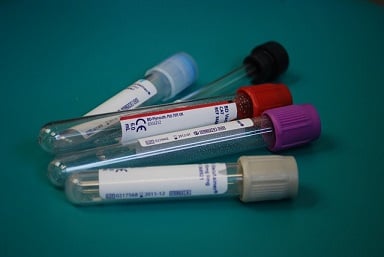GWG Life is using saliva samples to assess risk of all-cause mortality

Using the developing science of epigenetics, Minneapolis-based GWG Life is using saliva samples to analyze cells and assess an individual’s risk of all-cause mortality.
The firm’s main business is in the secondary insurance market, so being able to predict life expectancy accurately is a massive advantage.
The technology was peer reviewed in the September 2016 issue of Aging and for GWG Life CEO Jon Sabes it’s a huge step forward for the industry.
“It is not a question of is this predicable of all-cause mortality - it has been proven as such,” he says. “The question now is how do you translate that into actuarial science and apply it to pricing on life insurance.”
Epigenetics is the study of changes in organisms caused by a modification of gene expression rather than alteration of the genetic code itself. As such, a person’s epigenetics will change over time, making it especially useful for the underwriting process.
“At the epigenetic level, your environmental factors are in your gene expression,” says Sabes. “If you smoke, or are exposed to high stress situations, your environment will show up on a molecular level in your epigenol.”
It’s a new area of science that has emerged over the last 4–5 years and while GWG is an early convert of its uses, Sabes believes the entire industry will soon follow suit.
“The same as we have personalized medicine, we want personalized insurance,” he says. “For some people that means cheaper, and some more expensive, but in the end it should allow people to get better products for their own circumstances.”
Using genetic testing is a topical issue in Canada currently after the passing of Bill S-201. The proposed law makes it illegal for anyone to require a person to undergo genetic testing, or disclose the results of previous tests, as a condition of signing or continuing a life insurance policy.
Sabes is keen to make the distinction between the two biological studies, and believes a similar ban on epigenetic testing would be a mistake.
“Epigenetics changes over time, so it’s no different than your blood pressure or BMI, or a host of other ways that insurance companies price risk,” he says.
“While I understand that we don’t want to discriminate against conditions people cannot change, and I appreciate that policy makers want to protect people, they need to understand the benefits technology will bring consumers. It’s pretty astounding.”
Related stories:
Genetic testing law will lead to higher premiums, says industry body
Liberal MPs defy Trudeau, approve ‘unconstitutional’ bill vs genetic discrimination
The firm’s main business is in the secondary insurance market, so being able to predict life expectancy accurately is a massive advantage.
The technology was peer reviewed in the September 2016 issue of Aging and for GWG Life CEO Jon Sabes it’s a huge step forward for the industry.
“It is not a question of is this predicable of all-cause mortality - it has been proven as such,” he says. “The question now is how do you translate that into actuarial science and apply it to pricing on life insurance.”
Epigenetics is the study of changes in organisms caused by a modification of gene expression rather than alteration of the genetic code itself. As such, a person’s epigenetics will change over time, making it especially useful for the underwriting process.
“At the epigenetic level, your environmental factors are in your gene expression,” says Sabes. “If you smoke, or are exposed to high stress situations, your environment will show up on a molecular level in your epigenol.”
It’s a new area of science that has emerged over the last 4–5 years and while GWG is an early convert of its uses, Sabes believes the entire industry will soon follow suit.
“The same as we have personalized medicine, we want personalized insurance,” he says. “For some people that means cheaper, and some more expensive, but in the end it should allow people to get better products for their own circumstances.”
Using genetic testing is a topical issue in Canada currently after the passing of Bill S-201. The proposed law makes it illegal for anyone to require a person to undergo genetic testing, or disclose the results of previous tests, as a condition of signing or continuing a life insurance policy.
Sabes is keen to make the distinction between the two biological studies, and believes a similar ban on epigenetic testing would be a mistake.
“Epigenetics changes over time, so it’s no different than your blood pressure or BMI, or a host of other ways that insurance companies price risk,” he says.
“While I understand that we don’t want to discriminate against conditions people cannot change, and I appreciate that policy makers want to protect people, they need to understand the benefits technology will bring consumers. It’s pretty astounding.”
Related stories:
Genetic testing law will lead to higher premiums, says industry body
Liberal MPs defy Trudeau, approve ‘unconstitutional’ bill vs genetic discrimination



